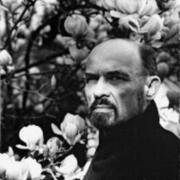Irvin Yalom
Author of When Nietzsche Wept
About the Author
Irvin D. Yalom was born in Washington, D.C. on June 13, 1931, of parents who immigrated from Russia shortly after World War I. Yalom entered into medical school intent on studying the field of psychiatry. His first writings were scientific contributions to professional journals. His first book, show more "The Theory and Practice of Group Psychotherapy" was widely used as a text for training therapists. It has been translated into twelve languages and spawned four editions. "Existential Psychotherapy" followed, which was a textbook for a course that did not exist at the time, and then "Inpatient Group Psychotherapy," a guide to leading groups in the inpatient psychiatric ward. In an effort to teach aspects of Existential Therapy, Yalom turned to a literary conveyance and wrote a book of therapy tales called "Love's Executioner", two teaching novels, "When Nietzsche Wept" and "Lying on the Couch" and, "Momma and the Meaning of Life," a collection of true and fictionalized tales of therapy. These books went on to be best sellers, and "When Nietzsche Wept" won the Commonwealth Gold Medal for best fiction of 1993. They have been widely translated,each into about fifteen to twenty languages, and have had considerable distribution abroad. (Bowker Author Biography) show less
Disambiguation Notice:
(yid) VIAF:109548796
(ger) VIAF:73901760 (viafIncluded)
(mao) VIAF:PND:120541092
(spa) BNE:XX1162704
Image credit: Reid Yalom
Works by Irvin Yalom
The Gift of Therapy: An Open Letter to a New Generation of Therapists and Their Patients (2001) 1,061 copies, 17 reviews
Guía breve de psicoterapia de grupo (Psicología Psiquiatría Psicoterapia) (Spanish Edition) (1996) 4 copies
הריפוי של שופנהאואר 2 copies
Zvaću policiju 1 copy
Love's Executioner and Other Tales of Psychotherapy (Penguin Psychology) by Irvin Yalom(1995-01-31) 1 copy
Understanding Group Psychotherapy, an Interview with Yalom (Understanding Group Psychotherapy) Volume III (2006) 1 copy
KUPTIMI I JETES 1 copy
Theory and Practice of Group Psychotherapy (text only) 5th (Fifth) edition by I. D. Yalom,M. Leszcz 1 copy
RRUGETIM DREJT VETVETES 1 copy
טיפול קבוצתי : תיאוריה ומעשה 1 copy
Associated Works
Tagged
Common Knowledge
- Canonical name
- Yalom, Irvin
- Legal name
- Yalom, Irvin David
- Other names
- ארווין ד. יאלום
- Birthdate
- 1931-06-13
- Gender
- male
- Nationality
- USA
- Birthplace
- Washington, D.C., USA
- Places of residence
- Palo Alto, California, USA
- Education
- George Washington University (BA|1952)
Boston University (MD|1957) - Occupations
- professor
psychiatrist - Relationships
- Yalom, Marilyn (wife)
Yalom, Reid S. (son)
Yalom, Eve (daughter)
Yalom, Victor (son)
Yalom, Ben (son) - Organizations
- Stanford University
- Awards and honors
- Oscar Pfister Award (2002)
Commonwealth Gold Medal (1993)
International Sigmund Freud Award for Psychotherapy (2009)
Edward Strecker Award (1974) - Short biography
- Professor Emeritus of Psychiatry at Stanford University and author of several textbooks and novels on psychotherapy.
Born in Washington, D.C. to parents who immigrated from Russia shortly after WWI. Grew up in inner-city Washington, in a small apartment above his parents' grocery store on First and Seaton Street.
Husband of the late Stanford historian Marilyn Yalom. - Disambiguation notice
- VIAF:73901760 (viafIncluded)
Members
Reviews
Lists
Tom's Bookstore (4)
TLS 6009 (1)
Awards
You May Also Like
Associated Authors
Statistics
- Works
- 49
- Also by
- 1
- Members
- 11,123
- Popularity
- #2,123
- Rating
- 3.9
- Reviews
- 200
- ISBNs
- 667
- Languages
- 29
- Favorited
- 41


















